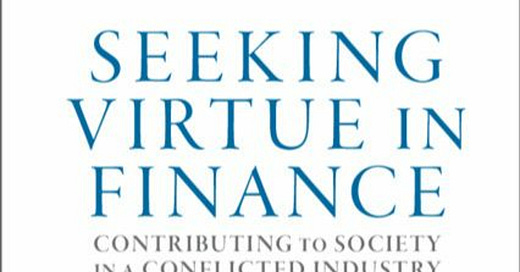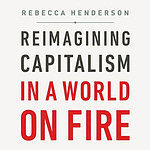"Seeking Virtue in Finance: Contributing to Society in a Conflicted Industry" is the newest book by JC de Swaan, a lecturer in the economics department at Princeton University, where he is affiliated with the Bendheim Center for Finance, and a partner at Cornwall Capital, a New York-based investment fund that the movie "The Big Short" portrayed. At Princeton, Prof. de Swaan teaches classes in Financial Ethics as well as Asian capital markets. Since the 2008 Financial Crisis, a surge of interest in the use of finance as a tool to address social and economic problems suggests the potential for a generational shift in how the finance industry operates and is perceived. Prof. de Swaan seeks to channel the forces of well-intentioned finance professionals to improve finance from within and help restore its focus on serving society. Drawing from inspiring individuals in the field, Prof. de Swaan proposes a framework for pursuing a viable career in finance while benefiting society and upholding humanistic values. In doing so, he challenges traditional concepts of success in the industry, making his work applicable to everyone in and outside of the world of finance. In this interview, we discuss the fundamental reasons behind frequent ethical violations in the financial industry – from asymmetry of information between financial professionals and customers to flawed corporate culture that incentivizes unethical competition. We also talk about the various ways how individuals can effect positive changes within financial institutions and transform corporate culture. We even venture to some "meta" questions about institutional and system design: it seems that in order to fundamentally disincentivize unethical behavior in finance and business, one would need to create a system of better sense-making and choice-making – a system with infinite capacity to solve problems that the current world cannot solve well. We would also need more individual ecosystems where people no longer feel the need to climb up a few corporate ladders in order to be considered as successful; and we need to have a better social architecture where one no longer needs to win at the game of power against some external force in order to not lose at the game of power… Is this a realistic vision? Do we need to fundamentally upend the current financial and regulatory regime to root out unethical behaviors?
1×
0:00
Current time: 0:00 / Total time: -1:42:18
-1:42:18














Share this post